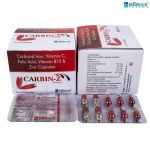Contents
- 1 Is Lupus and Lupus Anticoagulant the Same?
- 1.0.1 Antiphospholipid antibody syndrome
- 1.0.2 Symptoms of lupus anticoagulant
- 1.0.3 Testing for lupus anticoagulant
- 1.0.4 Complications of lupus anticoagulant
- 1.0.5 Treating symptoms of lupus anticoagulant
- 1.0.6 What is lupus?
- 1.0.7 Symptoms of lupus
- 1.0.8 Causes of lupus
- 1.0.9 Complications of lupus
- 1.0.10 How lupus is diagnosed
- 1.0.11 Treating lupus
- 1.0.12 Lupus and lupus anticoagulant
Is Lupus and Lupus Anticoagulant the Same?
Lupus is an autoimmune condition and lupus anticoagulant refers to antiphospholipid antibody syndrome.
Put simply, no. Lupus and lupus anticoagulant are not the same! Having lupus does not mean you also have lupus anticoagulant. Lupus anticoagulant is a type of antiphospholipid antibody syndrome, not a form of lupus.
Lupus anticoagulant is the presence of certain antiphospholipid antibodies in your body. If you have these antibodies, you have an increased risk of developing blood clots and may experience some common side effects. It’s possible to have both lupus and lupus anticoagulant and show symptoms of one while the other is controlled.
An anticoagulant makes it harder for blood to clot, but lupus anticoagulant actually makes it easier for blood to clot. The name comes from old misconceptions about the antibody developed in the 1940s.
This condition primarily affects women, as well as people of African, Asian, and Hispanic descent. It is less common in people of European descent.
Antiphospholipid antibody syndrome
Antiphospholipid antibody syndrome (APS) can affect you regardless of whether you have lupus. However, around 50% of people with lupus also have APS. APS is diagnosed by the presence of antiphospholipid antibodies and the resulting side effects.
For example, if you experience complications such as blood clots during pregnancy, your healthcare provider may run tests to check for high levels of antiphospholipid antibodies and diagnose you with APS if they are detected.
Symptoms of lupus anticoagulant
You may have these antibodies in your system for years without showing symptoms. However, the most common symptom of lupus anticoagulant is blood clots.
Blood clots can be triggered by factors such as smoking, inactivity, pregnancy, hormone therapy, cancer, or kidney disease. Another symptom is a red or purple-tinted, lace-like pattern under the skin, known as livedo.
Other symptoms may include repeated clotting in veins or multiple pregnancy losses in the mid to late stages of pregnancy.
Testing for lupus anticoagulant
Lupus anticoagulant is screened for using blood clotting tests. If you have antiphospholipid antibodies, the test results will be abnormal. Your healthcare provider may decide to test for lupus anticoagulant if:
- You have an unexplained blood clot or clotting in a rare situation
- You are a woman and have experienced repeated pregnancy losses
Complications of lupus anticoagulant
The most serious complication of lupus anticoagulant is blood clots, which can occur anywhere in the body and lead to heart attack, stroke, gangrene, or other injuries. Other complications may include miscarriage or fetal loss, thromboses, low platelet counts, strokes, pulmonary emboli, and pulmonary hypertension.
Treating symptoms of lupus anticoagulant
Treatment aims to prevent new blood clots and stop existing clots from growing. This may involve long-term use of blood thinners. If you also have lupus, managing its symptoms is important. Regular monitoring by your healthcare provider is crucial.
If you have lupus anticoagulant and become pregnant, it is important to consult a healthcare provider who specializes in APS.
What is lupus?
Lupus is an autoimmune disease where the immune system attacks the body’s tissues and organs, causing inflammation that can affect various parts of the body.
Lupus can be triggered by factors such as infections, certain medications, or sunlight exposure, especially in individuals with a genetic predisposition.
Symptoms of lupus
Symptoms of lupus vary from person to person and can be similar to other illnesses, making diagnosis challenging. They often involve mild, persistent symptoms with occasional flare-ups.
Common symptoms include tiredness, fever, joint pain and swelling, rash on the face or body, sensitivity to sunlight, color changes in extremities in response to cold or stress, difficulty breathing, chest pain, dry eyes, memory issues, and headaches.
IMAGES
Causes of lupus
Lupus is likely caused by a combination of genetic and environmental factors. Those with a genetic predisposition may experience symptoms when exposed to triggers.
Complications of lupus
Lupus can affect various parts of the body, leading to complications such as kidney damage, neurological symptoms, blood disorders, inflammation in the chest cavity, heart problems, increased risk of infections, cancer, bone tissue death, and pregnancy complications.
How lupus is diagnosed
Diagnosing lupus can be challenging due to overlapping symptoms with other conditions and the time it takes for symptoms to manifest. A doctor will consider your medical history, symptoms, and may perform lab tests to check for markers of lupus.
Treating lupus
While there is no cure for lupus, there are ways to manage symptoms and improve quality of life. Treatment options, including medications, depend on individual symptoms and medical history.
Lupus and lupus anticoagulant
Lupus and lupus anticoagulant are distinct conditions, although it is possible to have both. Close collaboration with healthcare providers is vital to minimize side effects and ensure proper care.
Sources: Cleveland Clinic, Hospital for Special Surgery, Johns Hopkins, Mayo Clinic, Mount Sinai


